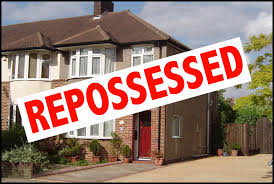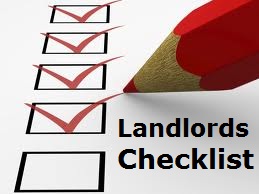Property Legal
The role of a transfer attorney or conveyancers
If you considering buying/ selling your property you will hear the word conveyancing thrown around quite a bit. In this article we explain what it is and what the conveyancing process is.
What is conveyancing?
According to the private property website Conveyancing is the legal process that takes place when lawful ownership is obtained of immovable property. Each time a property is sold a new deed of transfer must be drawn up and registered. This is to ensure the security and certainty of an owner’s title to his property.
There are three conveyancing attorneys involved in the property buying/selling process:
Transferring Attorneys
transferring attorneys transfer the property from the seller to the buyer. They represent the seller and are appointed by the seller.
Registering (or Bond) Attorneys
These attorneys register the bond over the property in favor of the bank that is financing the purchase of the property. They represent the buyer and the bank granting the buyer’s home loan. These attorneys are appointed by the bank granting the buyer’s home loan.
Cancellation Attorneys
They cancel the seller’s existing home loan on the property. They represent the bank cancelling the seller’s home loan. They are appointed by the bank cancelling the seller’s bond.
If you are in the property market here are a few things to bear in mind:
According to Stacey Bartlet director of Photshane, Henney Attorneys, as a rule of thumb, our common law determines that a seller is the party entitled to nominate who the transferring attorney must be, given that the seller carries more risk than the purchaser. That said, nothing prevents parties from agreeing that the purchaser can nominate the transferring attorney.
The purchaser is then required to raise the purchase price, cover the transfer fees (yes this includes paying all 3 of the above mentioned attorneys) and meet conditions such as financing. The transferring attorney has to ensure that the purchase price is secured and available.
Regardless of who appoints the conveyancer, the conveyancer owes a duty of care to both parties and must represent both parties fairly, unless a dispute arises, in which case the transferring attorney will be allowed to act on behalf of the party who nominated him.
Tips:
- Not every attorney is a conveyancer so before going to any attorney’s office for this service ensure that they actually practice conveyancing.
- When your bond application is approved enquire whether same will include transfer costs if it doesn’t the purchaser may have to pay this amount out of his own pocket
Speak to your legal provider before undertaking to purchase/ sell immovable property so that you are well aware of all the financial
Can a neighbor object to my building plans?
Home improvement comes with some inherent challenges and pitfalls, especially if you run into trouble with your neighbors or the local council. Many people tend to overlook the need to submit building plans or to check legalities when they make alterations to, or renovate their homes. In this article we look at what the law says and how it affects the intended building plans.
What does the law say?
While there is no legal requirement in the National Building Regulations and Building Standards Act (“NBA”) for an applicant to inform their neighbors of their application, there might be such a requirement in the by-laws of the local municipality according to Van Deventer and Van Deventer Incorporated.
However, if an application for the approval of building plans is made at the same time as an application for rezoning (zoning meaning municipal or local government laws that dictate how property can and cannot be used in certain areas) of the said property, the relaxing of building lines, or the removal of a restrictive condition or covenant, the neighbor must be notified.
Does my neighbors have the right to object to building plans?
In terms of the NBA, unless it states otherwise in another law, neighbors do not have the right to object to building plans. In certain cases, however, the municipality may invite neighbors to object to the building plans.
Can my neighbor’s objection hinder the approval of my building plans?
If an objection is submitted, it won’t necessarily prevent the building plans from being approved. Even though the municipality is bound to consider the objection, it will still make up its own mind about whether or not the plans should be approved. The municipality is obligated to consider the rights of the neighbors in terms of Section 7 of the NBA.
Therefore, if a neighbor hears about a pending application, and they are unhappy about it, they may submit an objection or comments to the local municipality. The municipality will then have to consider those submissions when making its decision.
What happens when a neighbor is unhappy about the building plans?
The only recourse that an aggrieved neighbor has is to apply for the court to review the decision to approve the plans, in terms of the Promotion of Administrative Justice Act 3 of 2000 (“PAJA”).
If the neighbors can convince the court that there were procedural flaws in the approval process, or that the proposed plans will negatively affect the neighboring property, they will be successful in their application. If there is an objection or an application for review speak to your legal provider as quickly as you can about your options.
Tips:
- It is sound advice to establish the legal requirements upfront and to resolve any possible issues with your neighbors and the council, before construction starts. Otherwise, the process might be dragged out by an unhappy neighbor in any event.
Types of ownership explained, what you need to know
Purchasing property is a good long term investment, we are often told, but what options are there for one to attain ownership?
Different types of ownerships:
- The most common types of ownership are freehold and sectional title for residential purposes. When purchasing property in this way there are legal and tax requirements to be satisfied in a form of transfer duty. According to Adrian Goslett, Regional Director and CEO of REMAX Southern Africa in an article published on the 27th of January 2018, when purchasing property as a natural person, transfer duty will be paid according to a sliding scale depending on the purchase price of the home. According to the 2017 Budget, homes priced from R0 to R900 000 are exempt from transfer fees, while properties priced between R900 001 and R1.25 million pay 3% on the value above R900 001. Homes priced between R1 250 001 and R1 750 000 will pay R10 500 plus 6% of the value exceeding R1.25 million etc.
- An individual could attain ownership as part of a private company (i.e. (PTY) Ltd). A private company that purchases immovable property will pay transfer duty at the same rate as a natural person. However, no transfer duty is payable by the seller if they are registered for VAT and the property forms part of the operations for which the seller is registered. But unlike our other options there are a lot more requirements that have to be complied with ito the Companies Act (Act).
- Ownership could further be attained through a Close Corporation (CC). While the introduction of the above Act phased out many CCs, existing ones could elect to continue to exist until deregistered, dissolved or converted into a private company governed under the new Companies Act. The difference between buying in a close corporation and a company, is that close corporations are governed by the Close Corporations Act 69/1984, they are managed by members, ownership is restricted to a maximum of 10 natural persons and the financial statements must be prepared by an accounting officer.
- The final option is to buy property through a Trust. A trust is established by a founder, trustees, and beneficiaries. The person that creates the trust is referred to as the founder or settlor. They will appoint trustees in terms of the Trust Deed who will manage the affairs of the trust for the benefit of the beneficiaries that are named in terms thereof. The one major benefit of this option is that property held within the trust is protected from being attached by the creditors of the beneficiaries, which provides a safe option to protect assets.
Before deciding on an option to purchase property it might just be a great idea to speak to your legal provider to better substantiate the above options for better clarity and understanding.
Tips:
- Speak to a professional who will also advise on the financial implications of the above options.
Repossession of property
With the rescission going on, a lot of people will be in the unfortunate position of getting their assets repossessed. The two assets that are always at risk of getting repossessed due to non-repayment are usually the car and house. In this article we look at the legal aspect of property repossession and what the process entails.
According to www.lawyersouthafrica.co.za repossession laws in South Africa are based on the provisions that should a borrower default in payment, the credit provider is entitled to cancel the agreement, repossess and sell the house in order to recover the outstanding balance owed to them.
Before a home can be repossessed the following process will usually take place:
- The bank contacts the debtor by phone or in writing once there is default in the repayment of the monthly bond amount.
- The bank discusses the situation with the debtor and gives them a number of options including catching up with the arrears, undergoing debt counselling or trying to sell the property.
- Should the bank come to the conclusion that none of the proposed options will resolve the issue, the bank forecloses?
- Some banks in South Africa offer clients assistance to sell their homes on the open market before they foreclose.
- The bank will asks its legal department to acquire a legal summons from the High Court or a Magistrate (depending on the amount of the property).
- The summons is delivered to the creditor in person by a court-appointed sheriff.
- The bank then needs to formally apply for the right to auction off the property. This is done in court where a judge determines whether legal and fair processes have been followed.
- Once the property is sold, the money received will be used towards covering the outstanding loan amount and costs. Whatever remains will be paid to you.
What other options can the bank give a creditor before repossessing their home?
In the some cases the bank may offer a debtor a “payment holiday”, so as to allow the debtor to get back on their feet. They may also be so “cooperative” to even renegotiate the terms of the contract by either lowering their interest rate or increasing the length of the payment contract.”
Before panicking and changing your telephone details trying to get away from your creditors, it may be a good idea to consult an attorney or your legal insurance provider about what your options are. You just might find that a solution available is simpler than losing your hard earned property.
Tip:
- Contact your bank before they contact you if you have missed payments.
- Once a section 129 notice is issued, you literally have 10 days to apply for debt review, avoid delays
- You can only be evicted from a house sold on auction when the property has been transferred to a new owner. If you are evicted before a transfer has taken place it is illegal.
My landlord is selling, so what’s going to happen with me?
The relationship between a tenant and landlord may be exasperating if not managed correctly. This becomes even worse in times of uncertainty. Imagine having occupied certain premises for a good few years only to open an email from your landlord explaining that he’s decided to sell the property which you occupy. Most people’s reaction would be a state of panic with questions such as what is going to happen to me know? What if the new landlord and I do not get along? Are we going to continue with the lease agreement or am I supposed to start looking for alternative accommodation. We answer all these questions below.
What does the law says?
According Adrian Goslett, regional director and CEO of RE/MAX of Southern Africa, the law does not prevent homeowners from selling their property while it is being rented out to a third party.
Although there is no obligation on the tenant to start looking for alternative accommodation immediately as the lease agreement will remain in effect under the new landlord and the tenant will be obligated by law to respect the stipulated terms, as will the new landlord. If the tenant is of the view that they would much rather look for alternative accommodation, section 14 of the Consumer Protection Act stipulates that a fixed term contract within the fixed term can be terminated early on the condition that the new owner is a supplier who lets property in the ordinary course of their business. The tenant needs to give a 20 business day notice period during the term of the lease. The tenant may be liable for the notice month and possibly a reasonable penalty fee.
What is the position if the tenant would like to renew the lease agreement?
According to property 24 the new owner’s intention needs will be definitive. If the home was purchased as an investment property, then a renewal maybe possible, but if the property was purchased as a primary residence, the new owner will not want to renew the lease as they will want to take occupation as soon as possible.
The new owner will have to check the previous lease for a renewal clause that outlines how much notice you must give in such a situation. If there no renewal clause then the landlord may invoke the cancellation clause of the original lease, if there is one, in order to get out of the agreement.
Without a cancellation clause, the best way to get out of the contract would have been to give your tenant one month’s notice, in writing, before the lease expired. (So if you were nearing the end of a 12-month lease, you should have let your tenant know, in writing, at the end of the eleventh month.)
Tips:
- If the landlord is thinking of selling the property have a proper consultation with them enquire what your options are and what purpose is the leased property being sold.
Complex Living. Why do you have a body corporate?
With cities getting bigger , spaces and families getting smaller and crime being so prevalent most people have opted to stay in sectional titles commonly known as complexes .Complexes have become an obvious choice because they are much cheaper and safer compared to “stand alone” homes . This phenomenon has brought about some changes, one of which is the concept of a body corporate. A body corporate is a collective name given to the owners of the units and common property within a sectional title scheme. Sectional titles are regulated by legislation in the form of the Sectional Titles Act 95 of 1986.
What is the function of the body corporate?
- Body corporate has a duty to manage and maintain the common property. This includes the drive ways, common grass and play arrears, swimming pool clubhouse etc. The body corporate appoints trustees to act on its behalf to attend to duties such as
- Establishing a fund via levies paid by the owners for maintenance, management and administration of the common property and payment of taxes, water, electricity and insurance.
- Opening a bank account
- Insuring the buildings
- Maintaining common property
- Arranging for repairs maintaining all instruments and machines that form part of the common property
- Section 44 (1)(c ) of the above mentioned Act places the obligation to maintain and repair sections squarely on the shoulders of the owner .As mentioned above the body corporate is only responsible for the maintenance and repairs of the common property .
- The body corporate has discretion to step in and make prescribed repairs in certain sections of the property if the owner fails to repair a section that he is obligated to repair. Before such repairs can be effected the trustees need to notify the owner (i.e. give owner a thirty (30) day notice to make the necessary repairs failing which the repairs will be effected and all reasonable costs may be recovered from the owner.
What is the consequence of an owner that has tenants?
Landlords and Tenants in a sectional title scheme have additional responsibilities to ensure that their rights and obligations arising from the lease agreement are protected and cannot be interfered with. It needs to be clarified that the owner’s rights and tenant’s rights and responsibilities are contained in the Rental Housing Act and some aspects of common law. The owner’s rights and responsibilities to other owners is governed by the Sectional Titles Act.
Can a body corporate decide who the owner can lease his/ her property to?
Who the owner decides to lease his property to is the sole prerogative of the owner, the body corporate cannot interfere. Should the tenant be in breach of his lease contract the landlord can follow the procedure for breach and has the right to cancel the contract and bring an application for eviction.
Tips
- Most body corporate have rules and policies in place, if you are thinking of purchasing property it is absolutely imperative that you go through these and understand them especially in relation to matters such as damage insurance (whether there is an access that needs to be paid before any repairs to your property can be effected) and the rules relating to leasing out your property.
- Owners are not allowed to cancel lease agreements and evict tenants without the proper procedure being followed. Remember the Constitution (including the Bill of Rights) is the highest law in the land and no individual right can supersede same.
- Please note that this is general advice, you may need to consult a professional to receive further advice in relation to this topic
Additional Cost when buying a property. What should i plan for?
We all know how exciting the prospect of buying a home is but before you get too excited you need to consider a lot of accompanying elements such as location of the home, the costs associated with acquiring this home etc. This article focuses on the costs associated with buying a home. There is a common consensus across the board that buying property in South Africa, like most countries, is very expensive. This becomes an even bigger truth when you realistically look at all the hidden costs that are associated with buying and transferring property into the buyer’s name.
To illustrate the above we look at the following costs:
- Cost associated with the actual property purchase ;
- Costs associated with any bond (the loan from the bank) should you require one and ;
- Other sundry expenses and disbursements that you should also be aware of.
Costs (yes as in plural) associated with the actual property may include the following:
Conveyancer’s fees:
These are what people commonly refer to as lawyer fees. Conveyancers (like most specialists) do not come cheap. What may seem even more unfair is that although the property belongs to the seller it is the buyer that needs to pay the conveyancers fees even though the conveyancer acts on instructions provided by the seller. Conveyancer’s fees are charged depending on the value of property being purchased. This means that the more expensive your property is the higher the conveyancer’s fees.
Property Search Fees
This is done by the conveyancer for purposes of ensuring that there are no conditions on a title deed an example of this would be servitude. This has a cost implication of anything from R 75.00 to R 200.00
Financial Intelligence Centre Act fees
This Act affectionately referred to as FICA places an obligation on conveyancers to verify the identity of their clients prior to establishing a business relationship with them. This includes requesting and verifying their identity documents and proof of residential address and subsequently storing same at their offices for a period of at least five years .This exercise alone will cost you anything from R 200.00-R 500.00.
Rate Clearance Certificate
The conveyancer needs to obtain a rate clearance certificate from the municipality to verify that there are no outstanding rate and taxes owing by the seller. This has a cost implication of anything from R 165.00 (and yes it is the buyer that pays for this as well). Further the buyer will have to pay at least four month’s rates and taxes in advance.
Deeds office Fees
The fees for transferring property are charged at a sliding scale according to the purchase price of the property .This roughly means the following:
If property is R 150 000.00, assuming you can still find a property with this price, or less the deeds office fees will be R 70.00. If the property cost is over R 300 000.00 up to R 500 000.00 the deeds office fee will be R 550.00. If the property is over R 500 000.00 and up to R 1000 000.00 the deeds office fees will costs you R 650.00 etc.
Transfer Duties
This relates to the tax charged by government on property transactions. This also works on a sliding scale .According to the SARS transfer duties applicable as of the 1st of March 2017 are as follows:
| Value of Property | Transfer Duty |
| 0-900 000.00 | 0% |
| 900 001.00- 1250 000 | 3% of the value of the property above 900 000 |
| 1 250 001-1 750 000 | R 10 500+6% of the value above R 1250000 |
| 1 750 001-2 250 000 | R 40 500+8 % of the value above R 1750000 |
| 2 250 001-10 000 000 | R 80 500+ 11% of the value above R 2 250 000 |
| 10 000 001 and above | R 933 000 + 13% of the value above R 10 000 000 |
The cost of buying a house may also include Home owners association fees as well as posts and petties.
Costs associated with attaining a bond from the bank.
If your head isn’t spinning enough yet, we now focus on the costs associated with the home loan or the bond. When you apply for a home loan there are 4 parties you need to be aware of and will subsequently need to pay namely:
- The bank (bond) fee – this is a once off fee that is charged by the bank for processing your loan application it differs from different banks and may cost up to R 5 700.00
- SARS – Vat is charges at 14% of the total conveyancers fees
- The attorney (conveyance)- Conveyancer’s fees are charged according to the size of your bond and may range from 0.7- %12%
- And the Deeds office – these are also dependent on the size of the bond and starts from R 200.00
www.sahomebuyers.co.za gives recommended guidelines of fees for the conveyance of immovable on the table below. Please note that the calculations below were done in 2013 and all related costs have significantly increased since then. Please also note that these are general calculations and should not be solely relied upon.
| Value of Property | 1 million | 2 million | 3 million |
| Transfer duty (Government tax) | R 12 000 | R 77 000 | R 317 000 |
| Transfer fees | R 14 800 | R 20 600 | R 38 100 |
| Bond costs for a 50% bond | R 7 500 | R 12 200 | R 19 500 |
| Total fees | R 34 300 | R 109 800 | R 374 600 |
| Total amounts required for the purchase of the property | R 1 034 300 | R 2 109 800 | R 3 374 600 |
Tips:
- Before committing to buying a home speak to a professional about how much it would cost to buy the property.
- Have a discussion , if you can, with the current owner of the property about all costs related to maintaining this property discuss things such as rates etc this may save you a lot of future anguish .
- Ask as many questions as you can and get as much clarity on issues you don’t understand especially when it comes to costing because ultimately this is a 20 year old contract that you need to fulfill and a lot of your hard earned money will go towards this property
Attachment of Property
The term property is mostly associated with houses, apartment or flats however, in law there are two types of properties i.e. movable property or immovable property. Movable property refers to property such as your car, furniture appliances etc .Immovable property refers to your house or land. In this article we focus on movable property.
When can property be attached?
Before we answer this question we first need to establish what is meant by attachment? In law this term refers to the process of removal of property from an owner by a sheriff of the court with the intention of settling a debt. Property can only be attached if there is a court judgment that has been given and the defendant (the debtor) has still failed to settle a debt. A warrant of execution will have to be issued by the court to enforce payment. The court attaches the property because this is the only way to force the debtor to pay the judgment cost and any other amount that the defendant owes for example the sheriff’s fees and the plaintiff’s (the creditor’s) legal costs.
What type of property may be attached by the sheriff?
The Sheriff will usually attach property such as television sets, fridges, radios, a motor vehicle and so on. After the property is attached the sheriff of the court will then sell it with the intention to recover the judgment debt amount. The amount of judgment and cost is then paid to the creditor any surplus money after payment of the creditor that money will be paid back to the debtor.
What happens when the debtor does not have enough property to attach?
If the defendant does not enough property which can be sold to pay off the creditor’s claim, the creditor can ask the court to look into the financial affairs of the debtor. The court can then order that the debtor pays of the debt in monthly installments or even have a certain amount taken out of the debtor’s salary each month by the employer. This is called a garnishee order. If the debtor refuses to obey the court order he or she may be arrested for contempt of court.
Here are some tips if you are faced with an attachment:
- Always respond to your creditors because this will allow you to negotiate a lower premium but make sure that you are in contact with them to avoid default judgments being taken.
- In the event that summons are issued against you, immediately consult with an attorney this can save you a great deal of money. We know that attorneys are expensive but not responding to court summons may cost you even more and your credit record.
- If you are in a position to pay for an attorney seek help from the legal aid board or go to court yourself some will be able to address your queries.
THE LAWS WITH HAVING A POOL
Even though winter is upon us and not a lot of days will be spent by the pool for the next few months we thought it might be great idea to look at the law concerning pool safety.
It may come as a surprise to know that there is legislation regulating the usage of privately owned pools it is called the National Building Regulations. This legislation was presented by the National Regulator for Compulsory Specifications an affiliate entity of the Department of Trade and Industry. According to Mark Atkins of bizcommunity.com there is an alarming number of residential pool owners who either know nothing about this legislation or are aware of the said legislation but chose not to adhere to it.
In a survey conducted between September and October 2016 called the Safe Summer Survey revealed that although 44% of the participants knew of a minor who either drowned in their own families, social circle or neighborhood only 14% were aware of the laws concerning the ownership of residential pools.
The National Building Regulations sets out certain requirements to be met by residential property owners with pools:
- The swimming pool should be enclosed by a fence which prohibits direct access to the swimming pool ,
- The fence should be self closing and have a self locking gate attached to it
- In the case of a complex or a sectional title the place surrounding the pool must have either a wall or a fence
- The wall or fence enclosing the pool must not be less that 1.2 meters high from the ground
- The construction requirements of SANS 1390 should be complied with
Precautions must be applied at all times to ensure safety especially of minors.
Can I terminate my lease agreement before the end of a lease period?
Most South Africans have, at some point in their lives been tenants. As a tenant, a lot of reasons may arise why you would want to have a lease agreement terminated before prescription of the lease period. The question that would then arise is whether such termination may result in breach of contract.
The answer to this question will most likely depend on whether the said lease agreement contains a cancellation clause .Most cancellation clauses are likely to set out the grounds for termination of the agreement .Unless there are no grounds for cancellation stipulated in the cancellation clause it may be difficult to get out of a lease agreement without any recourse. Even if the lease agreement doesn’t contain a cancellation clause, the tenant can still be considered to be in breach of the agreement if they decide to terminate the contract prematurely. If the tenant has breached the contract, the landlord is within their rights to demand that the tenant pays the rental amount due to them for the remainder of the agreed upon tenancy period.
When can an agreement be terminated?
–by mutual consent
Assuming that the landlord has met all the conditions in the agreement, the tenant and the landlord may mutually agree on the termination of the lease .The landlord may require that the tenant arrange for another tenant to take over the lease agreement or sublet the property for the remainder of the lease period.
In the event that the landlord has not met or fulfilled all his responsibilities such as failing to reasonably maintain the property in terms of the lease agreement, the tenant may be able to cancel the lease agreement early without the tenant being in breach of the agreement and will be absolved from paying penalties .The onus is on the tenant to prove that the landlord has failed to meet his contractual responsibilities and is thus in breach of contract.
Notice period
In terms of the Consumer Protection Act (CPA) a tenant has to provide the landlord with 20 days’ notice if they choose to cancel their lease before the prescribed period. This does not absolve the tenant of all his responsibilities; the landlord may recover all reasonable costs until finding another tenant from the existing tenant’s deposit.
Things to be aware of about lease agreements:
- Reduce your lease agreement into writing to avoid any additional or modifications outside of the lease. With a written lease agreement it is easier to prove breach should same be alleged
- Lease agreements are subject to national legislation, this includes, inter alia, the Rental Housing Act.
- Be mindful of the Consumer Protection Act , this piece of legislation grants the consumer the right to cancel a lease upon notice
- There is a cooling off period (5 day cooling off period) applicable to allow the consumer to cancel the agreement on becoming aware of any penalties if the agreement was a result of direct marketing.















